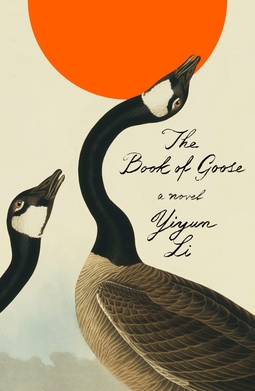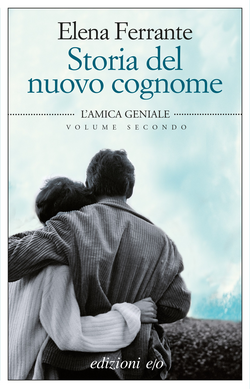
Ferdinand I, also known as Ferrante, was king of Naples from 1458 to 1494.

Alfonso II was Duke of Calabria and ruled as King of Naples from 25 January 1494 to 23 January 1495. He was a soldier and a patron of Renaissance architecture and the arts.

Domenico Starnone is an Italian writer, screenwriter, and journalist. He is a prolific book author, having penned at least 22 works since 1987, at least four of which have been translated from Italian into English, including Prima esecuzione and Confidenza. His novel Via Gemito won the Premio Strega in 2001, and movies by Gabriele Salvatores, Riccardo Milani, and Daniele Luchetti have been based on Starnone books.

Il bell'Antonio is a 1960 Italian-French drama film directed by Mauro Bolognini and starring Marcello Mastroianni and Claudia Cardinale. It is based on the novel of the same name by Vitaliano Brancati and was adapted for the screen by Pier Paolo Pasolini and Gino Visentini, moving the novel's setting during Italy's fascist era to the present.

Nasty Love is a 1995 Italian thriller film directed by Mario Martone. It was entered into the 1995 Cannes Film Festival. It is based on the novel of the same name, by Elena Ferrante. The film was shot mainly in Naples, Italy.

Alba Caterina Rohrwacher is an Italian actress.
Elena Ferrante is a pseudonymous Italian novelist. Ferrante's books, originally published in Italian, have been translated into many languages. Her four-book series of Neapolitan Novels are her most widely known works.
The Neapolitan Novels, also known as the Neapolitan Quartet, are a four-part series of fiction by the pseudonymous Italian author Elena Ferrante, published originally by Edizioni e/o, translated into English by Ann Goldstein, and published by Europa Editions. The English-language titles of the novels are My Brilliant Friend (2012), The Story of a New Name (2013), Those Who Leave and Those Who Stay (2014), and The Story of the Lost Child (2015). In the original Italian edition, the whole series bears the title of the first novel L'amica geniale. The series has been characterized as a bildungsroman, or coming-of-age story. In an interview in Harper's Magazine, Elena Ferrante has stated that she considers the four books to be "a single novel" published serially for reasons of length and duration. The series has sold over 10 million copies in 40 countries.
Ann Goldstein is an American editor and translator from the Italian language. She is best known for her translations of Elena Ferrante's Neapolitan Quartet. She was the panel chair for translated fiction at the US National Book Award in 2022. She was awarded the PEN Renato Poggioli prize in 1994 and was a Guggenheim Fellow in 2008.
The Days of Abandonment is a 2002 Italian novel by Elena Ferrante first published in English in 2005, translated by Ann Goldstein and published by Europa Editions. The novel tells the story of an Italian woman living in Turin whose husband abruptly leaves her after fifteen years together.

My Brilliant Friend is an Italian- and Neapolitan-language coming-of-age drama television series created by Saverio Costanzo for HBO, RAI, and TIMvision. Named after the first of four novels in the Neapolitan Novels series by Elena Ferrante, the series will adapt the entire literary work into four eight-episode seasons. My Brilliant Friend is a co-production between Italian production companies Wildside, Fandango, The Apartment Pictures, Mowe and international film groups Umedia and Fremantle.
Anita Raja is an Italian translator and writer who has translated many literary works from German to Italian, including those of Christa Wolf, Franz Kafka, Hermann Hesse, Bertolt Brecht, and many others. Raja has been suggested as a possible candidate for the Italian author writing under the pen name Elena Ferrante. Since 2016, journalistic investigations and scholarly work analysing financial records and textual similarities have led to reports that the books published under the Ferrante name are the work of either Raja, Domenico Starnone, or both. Starnone has strenuously denied being the author in the press and in his books, arguing that any similarities between his writing and Ferrante's are due to commonalities in subject matter and context.

The Lying Life of Adults is an Italian and Neapolitan-language coming-of-age drama television series created by Edoardo De Angelis, based on the 2019 novel of the same name by Elena Ferrante. It was released internationally by Netflix on 4 January 2023.

The Book of Goose is a 2022 novel written by Yiyun Li. The novel won the PEN/Faulkner Award for Fiction and was longlisted for the Andrew Carnegie Medal for Excellence in Fiction.
Frantumaglia is a non-fiction book written by Italian author Elena Ferrante. The book reflects on her writing process over 20 years, and has been republished to reflect her experiences writing the Neapolitan Novels.
Incidental Inventions is a non-fiction book published by writer Elena Ferrante in 2019. The book contains the columns published by the author in English newspaper The Guardian, and translated by Ann Goldstein.
The Lost Daughter is a novel published by writer Elena Ferrante in 2006, in Italian, and translated to English by Ann Goldstein in 2008.

My Brilliant Friend is the first volume of a four-part series of novels known collectively as the Neapolitan Novels, written by Italian author Elena Ferrante and translated to English by Ann Goldstein.

The Story of a New Name is a 2012 novel written by Italian author Elena Ferrante. It is the second volume in her four-book series known as the Neapolitan Novels, being preceded by My Brilliant Friend, and succeeded by Those Who Leave and Those Who Stay and The Story of the Lost Child. It was translated to English by Ann Goldstein in 2013.

Those Who Leave and Those Who Stay is a 2013 novel written by Italian author Elena Ferrante, published by Edizioni e/o. It is the third installment of her Neapolitan Novels, preceded by My Brilliant Friend and The Story of a New Name, and succeeded by The Story of the Lost Child. It was translated to English by Ann Goldstein in 2014, with that edition published by Europa Editions.












